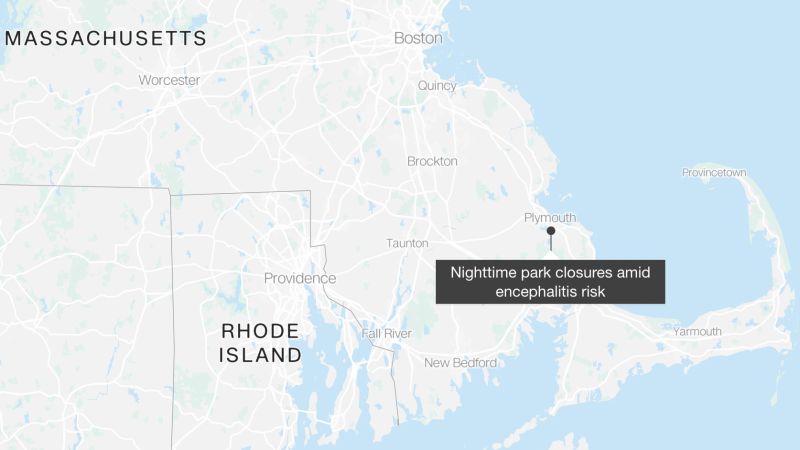In Plymouth, Massachusetts, a town has taken strict measures to protect its residents from the rare and deadly Eastern equine encephalitis (EEE) virus. The town officials announced the closure of municipal parks and fields to nighttime visitors due to the increased risk of EEE.
According to the Massachusetts Department of Public Health, EEE has a fatality rate of 33% to 70% and can be transmitted to humans through mosquito bites. The recent diagnosis of EEE in a horse in Plymouth raised the town’s risk level to high, prompting the closures.
On August 16, the state reported its first human case of EEE for the year, affecting a man in his 80s in Worcester County. This led health officials to raise the risk level of the disease in nearby communities.
Dr. Robbie Goldstein, the Massachusetts public health commissioner, emphasized the seriousness of EEE and urged residents to protect themselves from mosquito bites. The Centers for Disease Control and Prevention reported that around 30% of people infected with EEE die, while survivors often face ongoing neurological problems.
Despite its rarity, EEE outbreaks have been reported in Massachusetts in recent years, with 17 human cases and seven deaths in 2019 and 2020. To combat the spread of the virus, public health officials and the Massachusetts Department of Agricultural Resources announced plans to spray aerially for mosquitoes in Plymouth County and conduct truck-mounted spraying in parts of Worcester County.
As of Saturday, the EEE risk level was high or critical in 10 Massachusetts communities. Additionally, several municipalities, including Boston, are now considered at high risk for mosquitoes carrying the West Nile virus, according to the state health department.
In a related incident, Dr. Anthony Fauci, the former director of the National Institute of Allergy and Infectious Diseases, was hospitalized with West Nile virus but is now recovering at home.



